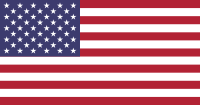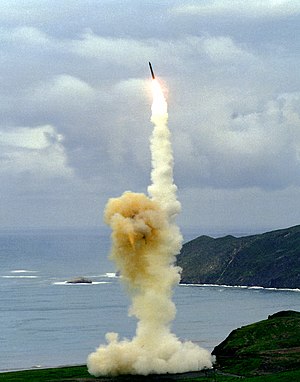"Get your hopes up.
Raise your expectations.
Your best days are still in front of you"
-- Joel Osteen
A new year has dawned on us. 2015 is finally here, and I am attempting to play soothsayer.
I am attempting to predict the trends that will define India and the world in 2015 and beyond...
- India will start getting a lot more homogenised from now on. Regional differences will fade away as a relic of the past, as India will unite in a new dawn of economic prosperity. Other cultural aspects like Bollywood, television soaps (no matter how trashy they may be) and cuisines that will also be minor triggers that catalyse the process
- The incumbent government will go on from strength to strength, acquiring legislative muscle in the Rajya Sabha by edging out the erstwhile "thekedaars" or landlords of power. This power will help them push through radical reforms that we have so desperately yearned for
- Indian bureaucracy will be shaken out of its reverie and will be forced to think out of the box. A corporate-style decision making process in the government will be initiated which will make policy matters consistent, durable and lasting
- A general feeling of well-being and a hope in the future will gradually be rekindled as Indians realise their true potential. Economic activity will pick up, the investment cycle will revive and job markets will open up. Entrepreneurial opportunities will also grow on an improved sentiment
- Growth in India will not be sustained unless the government steps in to pump-prime the economy. I predict massive investments would be initiated by the government in infrastructure, urban renewal, agricultural, social sector and heath care which will create opportunities for the private sector to establish a foothold, grow and thrive in virgin areas
- India will make strong moves to emerge as the factory of the world with the "Make In India" initiative. So far, India's impressive GDP growth in the last two decades has primarily been on the back of us being a consumption-led economy. But the emergence of India as a manufacturing hub will be the real multiplier in the GDP growth - not only will this diversify our economic base, but it will make us more resilient to global shocks
- The world appreciates potential but to be honest, it respects power. A resurgent India will emerge like phoenix on the world stage. Respect for India will grow as our foreign policy will show the world that we mean business and we mind our business. And our enemies must realise that if they take an eye, we'll take two eyes, no questions asked
- The world and India will particularly be at risk of a potentially unnerving crude price increase a year or two down the line when the Saudis and other OPEC nations are forced to curtail oil production in a desperate attempt to balance their budgets. But I suspect India would start building strategic energy reserves - domestic and international. The Indian government will have to consider establishing a sovereign wealth fund to build these strategic assets abroad
- India will recognise the importance and potency of flexing its soft-power muscles abroad. One dimension of soft-power is developing Indian brands on a global scale, say, to to become the next McDonalds, or the next Coke, or the next Google, or the next Honda. (No one can doubt the role the likes of Hollywood, Coke and McDonalds played in building America's soft-power globally in the 1960s till the mid-1990s (and it may sound counterintuitive but Marlboro, McDonalds and Coke evolved much beyond merely being brands, into cultural icons that took America into hearts and minds around the world). Besides promoting Indian economic interests abroad, India will make a concerted effort in promoting arts, culture, yoga, cuisine, tourism and Bollywood abroad to build sustained soft-power that can win over hearts and minds abroad for India's benefit
- The Indian government will have to do its bit to help Indian corporations to grow to such a scale internationally that they are in a position to build global brands. India's track record on economic diplomacy so far has not been stellar as was evidenced in a muted response to the troubles the GMR Group faced in the Maldives. India will make concerted efforts in stepping its economic diplomacy paving the way for Indian companies to expand globally
- India will emerge as a net-provider of security in the Asia-Pacific region, not only in the Indian subcontinent. India today is seen as a responsible and non-aggressive state which will make it a logical and trusted partner in any military and political alliance to counter expansionist, hegemonic and fundamentalist forces in the Asia Pacific region
- With the possibility of a future oil shock on the distant horizon, the West will have to open up to Iran. The restoration of US-Cuban relations is an important precedent for their rapprochement with Iran. Such a rapprochement will help ease the pressure on Indian diplomacy besides helping us contain Pakistan indirectly through more open economic relations with Iran and overt alignment of interests in Afghanistan. India will play a key role in a US-Iran rapprochement and yes, a Israel-Iran rapprochement - this may sound like a fairy tale, but yes, the interests of India, the United States, Iran and Israel do converge in ways that are way beyond the obvious and do not exactly meet the eye
- But any US-Iranian rapprochement would be severely opposed by the Arab states and this will in all probability unleash the next wave of global terror which India will have to be prepared to fight overtly, but more importantly covertly. We will see a massive scaling up of Indian hum-int (human intelligence) and e-eavesdropping operations besides building up physical capacity to launch covert, pre-emptive strikes to neutralise potential threats to India's interests
- India will make concerted efforts to shape impressionable minds of young citizens who will build India's tomorrow. Values of national pride and civic sense will be inculcated in them from a young age. They will grow up with a sense of pride in the nation's achievements and will respect the sacrifices our founding fathers and our armed forces made for our today and future. Kids will grow with a keen interest in seeing India achieve its true potential, they will grow as socially conscious individuals and not indifferent citizens. The government's swachh Bharat (clean India) campaign is one such stellar example. I hope there will be more
- Last but not the least, India will ensure security for 50% of its population, the female gender. India will never progress if our womenfolk are killed in the womb, abandoned, raped or burnt alive. We will learn from Chairman Mao Zedong that "women hold up half the sky". China too was obsessed with all things masculine, but it made economic strides only after they realised the role women can potentially play. They created the right conditions and their women held up their sky. There is no reason why Indian women won't do that
I hope all these trends start in 2015 and if they do, India will contribute significantly to not only its own development but also the entire world's...
May our collective wishes as a nation come true, तथास्तु tathastu and happy New Year!


















